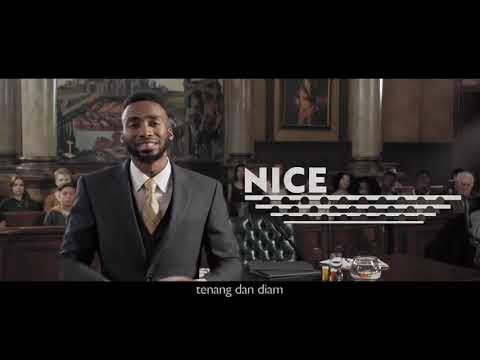Gugat Sistem Pend
Summary
TLDRIn this powerful speech, the speaker critiques modern education, likening it to a flawed system that stifles creativity and individuality. Using vivid metaphors, they argue that schools have failed to adapt to the evolving needs of students, forcing them into rigid molds. The speech challenges the outdated methods of standardized testing, competition, and one-size-fits-all teaching, advocating for a more personalized, creative approach to learning. Highlighting examples from progressive countries, the speaker calls for a revolution in education, urging society to prioritize fostering each student’s unique potential.
Takeaways
- 😀 Schools force students into rigid, standardized systems that suppress creativity and individuality.
- 😀 The current education system is outdated and was originally designed for training people to work in factories, not for fostering innovation.
- 😀 Students are treated as 'cookie cutter' individuals, receiving the same education despite their unique strengths and needs.
- 😀 Standardized testing is ineffective and often harmful, failing to measure true student potential and creativity.
- 😀 Teachers play a critical role in shaping students' futures but are underpaid and undervalued compared to other professions like doctors.
- 😀 The education system focuses too much on competition and grades, rather than collaboration and nurturing individual talents.
- 😀 The educational model in Finland, which includes shorter school days and a focus on collaboration, is highly successful and can serve as an example for reform.
- 😀 Personalized education that adapts to the strengths, gifts, and dreams of each student is essential for preparing them for the future.
- 😀 The current model of education produces 'robotic' students who are trained to follow orders rather than think critically and creatively.
- 😀 Reforming education requires customizing approaches to suit individual learning needs, just as we do with healthcare and other industries.
Q & A
What is the central argument of the speaker in this script?
-The central argument is that the traditional schooling system is outdated, stifles creativity, and fails to cater to the individual needs of students. The speaker advocates for a more personalized, innovative, and creative approach to education.
What does the metaphor of the fish climbing a tree represent in this speech?
-The fish climbing a tree metaphor symbolizes the unreasonable expectations placed on students by the traditional educational system. It illustrates how students are judged based on standardized criteria that may not suit their individual strengths or potential.
Why does the speaker criticize standardized testing?
-The speaker criticizes standardized testing because it reduces students' diverse abilities to a single measure, which doesn't accurately reflect their intelligence or potential. The speaker cites Frederick J. Kelly, the creator of standardized tests, who himself called them too crude to be used.
What role does the speaker believe teachers should play in education?
-The speaker believes that teachers are essential to students' development and should be recognized and compensated for their important work. Teachers should help nurture creativity and individuality, not just teach standardized content.
How does the speaker propose we transform the education system?
-The speaker proposes customizing education to cater to the unique needs of each student, encouraging creativity, collaboration, and critical thinking. They suggest moving away from standardized methods and embracing diverse teaching approaches that reflect students' individual talents.
What evidence does the speaker provide to show that the education system has not evolved?
-The speaker compares modern-day classrooms to classrooms from over 150 years ago, pointing out that little has changed in terms of structure and teaching methods, despite advances in other fields such as technology and transportation.
What is the speaker's opinion on the role of competition in schools?
-The speaker believes that schools focus too much on competition, particularly through grading systems, which can harm students' self-esteem and creativity. Instead, the speaker advocates for a collaborative approach that values each student's unique abilities.
What are some examples of successful education systems mentioned by the speaker?
-The speaker mentions Finland as an example of a country with a progressive educational system, highlighting shorter school days, well-paid teachers, and a focus on collaboration rather than competition. Singapore and Montessori programs are also mentioned as models of success.
How does the speaker connect the future of students to the future of society?
-The speaker stresses that while students make up 20% of the population, they are 100% of the future. By nurturing their dreams and potential, society can create a more innovative and successful future.
What is the speaker's main critique of the way students are treated in the current system?
-The speaker criticizes the system for treating students like uniform products, imposing a one-size-fits-all approach to learning that disregards their individual strengths, dreams, and creative potential. This approach fails to recognize the uniqueness of each student.
Outlines

هذا القسم متوفر فقط للمشتركين. يرجى الترقية للوصول إلى هذه الميزة.
قم بالترقية الآنMindmap

هذا القسم متوفر فقط للمشتركين. يرجى الترقية للوصول إلى هذه الميزة.
قم بالترقية الآنKeywords

هذا القسم متوفر فقط للمشتركين. يرجى الترقية للوصول إلى هذه الميزة.
قم بالترقية الآنHighlights

هذا القسم متوفر فقط للمشتركين. يرجى الترقية للوصول إلى هذه الميزة.
قم بالترقية الآنTranscripts

هذا القسم متوفر فقط للمشتركين. يرجى الترقية للوصول إلى هذه الميزة.
قم بالترقية الآنتصفح المزيد من مقاطع الفيديو ذات الصلة

Menggugat Sistem Persekolahan - Prince Ea | Subtitle Indonesia

Pidato Dahsyat... Orasi yang menggugah... Menggugat sistem pendidikan

Aku Menggugat Sistem Persekolahan by Prince EA

MENGGUGAT SISTEM SEKOLAH | VIDEO INSPIRASTIF

How Education System is Failed And Making You Poor !!

HE JUST SUED THE SCHOOL SYSTEM.
5.0 / 5 (0 votes)
